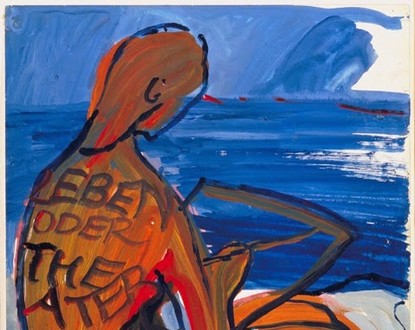:
The Study Day dedicated to the persecution of Jews in the Alpes-Maritimes during the Second World War provided an opportunity to present numerous testimonies and expert interventions.
An exhibition detailing the stages of these events was also offered by the National Office for Veterans and War Victims and the Shoah Memorial, whose director Jacques Fredj concluded the proceedings.
This day served as a reminder of those “dark and glorious” times when ideological fanaticism coexisted with the humanism of some, which allowed, among other things, the magnificent act that saved 527 children, some of whom were present in the room, and a few of them spoke.
We publish the speech of Prefect Adolphe Colrat, who wished to host this event at the Palais Sarde, the seat of the Republic and a symbol of the nation’s unity:
One regret, that of not being able to shake the hand and say thank you to Serge KLARSFELD today. An impressive and familiar monument. A Grand Officer of the Legion of Honor – These 7 words should be taken literally.
He notably fought for what happened not to be designated by a Greek word evoking a propitiatory or expiatory sacrifice, but by a Hebrew word, Shoah, whose two sinister syllables will resonate forever in human history, with the haunting memory of a methodically conducted campaign of annihilation.
A few years ago, I held in my hands a thick and dense small yellow book, like a DALLOZ code, the Memorial of the Deportation of Jews from France, compiled from the list of approximately 76,000 deportees, train by train, a compendium of dishonor and cruelty, cold, methodical, objective.
“At Auschwitz, only lice were gassed.” This stupid and hate-driven statement made in October 1978 by Louis DARQUIER de PELLEPOIX, who had been director at the General Commissariat for Jewish Affairs from 1942 to 1944, is a concentration of negationism and an admission—if the unconscious is structured like a language.
Yes, for some men, other men, once they were Jews, could be considered as less than harmful insects. Lice are exterminated.
Auschwitz, Thursday, January 30, 2014, at the invitation of the President of the General Council, with the Mayor of Nice, alongside a small cohort of witnesses and sons and daughters of witnesses, with the department’s middle school students. The freezing cold. The horror in its starkness.
The International Military Tribunal at Nuremberg, in the face of this horror, had to make exceptions to two fundamental principles of law by defining the crime against humanity:
The non-retroactivity of penalties—the convicted were judged for acts without example and without historical precedent, for which the classification did not exist—and the statute of limitations for crimes.
The statute of limitations, a reasonable consideration of the fact that we are in the realm of human affairs, that time must do its work, and there is a right to oblivion.
Crimes against humanity are imprescriptible. There is no right to oblivion. On the contrary, there is a duty to remember, in the strongest sense of the word ‘duty’: a moral obligation, which is inseparable from our human dignity. But it is not enough to assert imprescriptibility as a legal principle. For over time, memory can become distorted and fade.
Such is the meaning, significance, and necessity of a day like the one we are fortunate to experience.
Auschwitz – Nice.
On one side, the icy starkness. Barbarism.
Here, even at the time, smiling landscapes. People like us. Public officials. Civil servants. Bus drivers. Railway employees. Our fellow citizens.
And undoubtedly, in the majority, indifference or above all fear. In a few, too few in the light of the image we would like to have of our country, a sense of honor and courage, whatever the risks taken, but with very beautiful and noble figures from all walks of life. In others, yet, abjection.
Let us look at this history with humility, but first let us learn it and reflect on it. Together.
There is obviously no collective responsibility for the past, for what our grandparents or great-grandparents did or did not do. But there may be a collective responsibility for the future. No one must ever again be able to say: “I didn’t know.”
Adolphe Colrat, Prefect of the Alpes-Maritimes.


